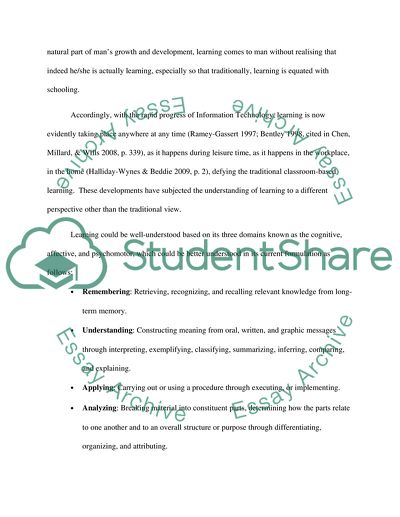Cite this document
(Formal Systematic Learning versus Informal Learning Literature review - 1, n.d.)
Formal Systematic Learning versus Informal Learning Literature review - 1. Retrieved from https://studentshare.org/education/1733235-formal-systematic-learning-is-of-less-importance-than-informal-learningdiscuss-this-statement-with-reference-to-theories-of-learning
Formal Systematic Learning versus Informal Learning Literature review - 1. Retrieved from https://studentshare.org/education/1733235-formal-systematic-learning-is-of-less-importance-than-informal-learningdiscuss-this-statement-with-reference-to-theories-of-learning
(Formal Systematic Learning Versus Informal Learning Literature Review - 1)
Formal Systematic Learning Versus Informal Learning Literature Review - 1. https://studentshare.org/education/1733235-formal-systematic-learning-is-of-less-importance-than-informal-learningdiscuss-this-statement-with-reference-to-theories-of-learning.
Formal Systematic Learning Versus Informal Learning Literature Review - 1. https://studentshare.org/education/1733235-formal-systematic-learning-is-of-less-importance-than-informal-learningdiscuss-this-statement-with-reference-to-theories-of-learning.
“Formal Systematic Learning Versus Informal Learning Literature Review - 1”, n.d. https://studentshare.org/education/1733235-formal-systematic-learning-is-of-less-importance-than-informal-learningdiscuss-this-statement-with-reference-to-theories-of-learning.


